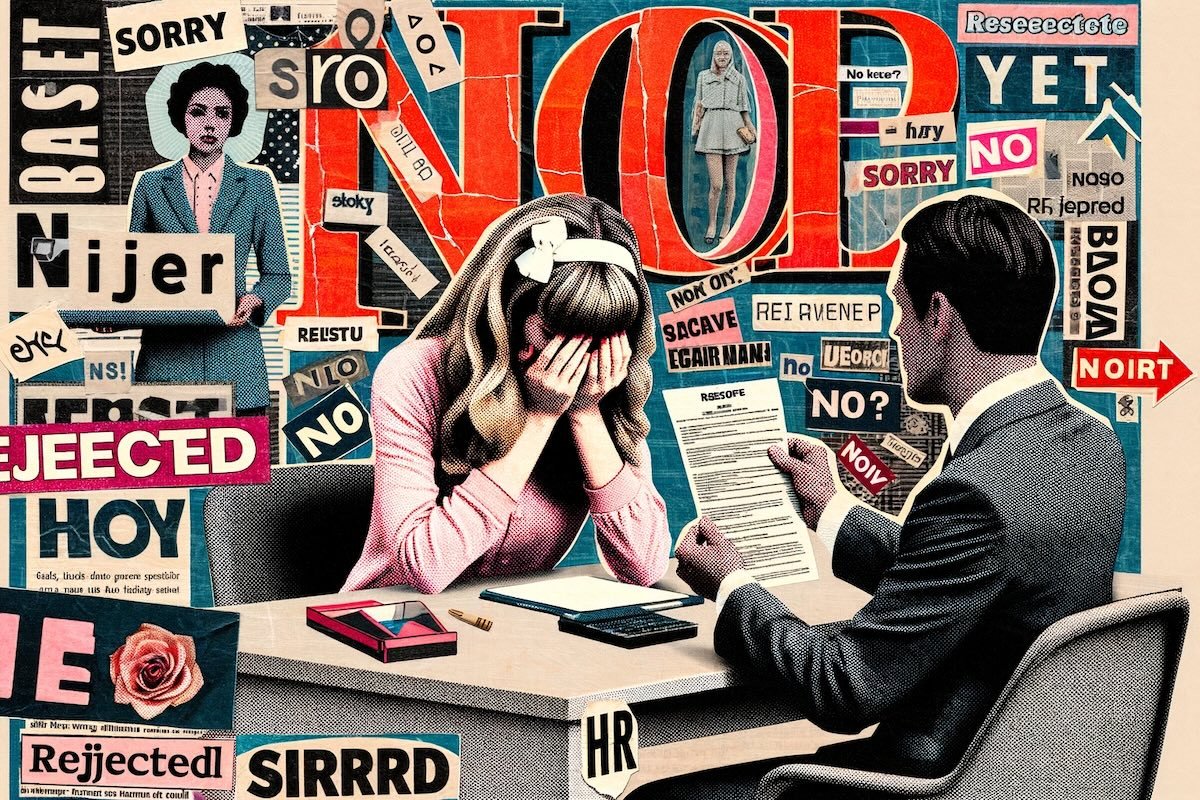"Why did you leave your last job?"
This
interview question is tricky for many reasons. As a job candidate, you want to be honest while keeping your answer professional. The truth is that we sometimes leave our jobs because we hate our boss, the culture is toxic, or the company seems to be headed for bankruptcy.
While we might feel ready to scream, "I hated that job with every fiber of my being!!!" from the mountaintops, it's always best to keep your answers...more political. Hiring managers don't want to imagine that you might speak negatively about them in your next interview.
We know that
not everyone leaves every job on good terms, but your interview should always focus on why you're the right fit for the new job, not why the last one didn't work out. This might mean figuring out a way to positively reframe a challenging experience at a previous job.
Here are some examples of how to positively reframe a less-than-ideal prior work experience:
| Instead of... |
Try this... |
|
My boss and I had a mutual disdain for each other, and I believe they were trying to stunt my professional growth.
|
I have been researching this organization for some time. One of the things I admire most is the amazing leadership team [Cite Examples]
|
|
I didn't want to work 90+ hour weeks anymore, especially since I am the primary caretaker for my aging parents.
|
I admire how this organization prioritizes a hybrid work model, especially as someone who works well early in the morning.
|
This
tricky interview question can trip up even the most seasoned interviewee. While we have generic advice on answering why you left your last job, we wanted to generate some situation-specific answers.
Pro Tip: Whenever possible, focus on the positive aspects of this job change and the opportunities you see in your new career path or job transition.
Explaining Why You Left Your Last Job
The advice for answering this question differs situationally. Sometimes, your reasons are pretty straightforward. In the case of a public and mass layoff, a candidate can pretty easily cite the layoff for the reason. However, when the reasons are more personal or convoluted, you might want to share more.
On the flip side, you might want to share very few details with respect to your departure—all while presenting an answer that satisfies your interviewer. It's all about disclosing the appropriate details about the circumstances without getting caught up in the list of reasons that you wanted to leave.
Today, we're exploring different types of answers for different types of job departures. Use these scripts to help prepare your answer during your next interview.
For more information about answering this question, as well as step-by-step advice, check out our other articles:
In this article, we'll explore different scenarios for leaving jobs, and example answers to try out.
How to Explain Leaving a Job for Career Advancement Opportunites
Whether you work in a small company and you've already reached "the top" or it seems that upward mobility is a dead end, leaving a job for a career advancement opportunity is one of the most common reasons for a job change. A hiring manager should be encouraged by a job seeker looking for growth opportunities.
"I left my last job to pursue new opportunities and challenges that align with my long-term career goals. I felt it was the right time to take on more responsibilities and contribute at a higher level."
"I was looking for a new challenge that would allow me to expand my skill set and take on projects that were more aligned with my interests. I believe the change will contribute to my professional growth."
How to Explain Leaving a Job Due to Company Restructuring or Company Stability
"Unfortunately, my previous company went through a significant restructuring, leading to a change in my role and responsibilities. As a result, I decided it was a good time to explore new opportunities."
"Given the recent financial instability and layoffs at my previous company, I decided to proactively explore new opportunities to ensure the stability of my career. I am looking for a company with a solid foundation and growth potential."
How to Explain Leaving a Job for Relocation
Usually, job relocation is an easy one to explain. If you work a job that requires on-site work, then it's no surprise that you would have to leave upon relocating.
"Due to personal reasons, I had to relocate to a different city, and unfortunately, it wasn't feasible for me to continue in my previous role. I am now excited about the prospect of contributing to a new team in this location."
How to Explain Leaving a Job for Better Work-Life Balance
Achieving a healthy work-life balance for your life is crucial to long-term success and happiness. Sure, we can all "burn the candle at both ends" sometimes, but that, unsurprisingly, always eventually
leads to burnout.
"I left my last job to achieve a better work-life balance. While I valued the experience and skills gained, I felt it was time to find a position that better aligns with my personal and professional priorities."
How to Explain Leaving a Job for Educational Pursuits
If you left your job to further your education, congratulations! That's so exciting, and your future boss should admire your dedication to yourself and your learning goals—especially if the degree you obtained or the coursework you completed enhances your abilities and qualifications for the job at hand.
"I made the decision to leave my previous job to pursue further education. I believe that the additional knowledge and skills I've gained will enhance my ability to contribute effectively in a new role."
How to Explain Leaving a Job for Company Culture Fit
If you're looking for a better cultural fit in your next workplace, explain this reasoning. You can name the work environment, pace of work, or work style to explain further. However, make sure to explain (with enthusiasm) why this work culture seems to be the perfect fit.
If possible, link your career goals and
core values to the company's mission statement. This will show any hiring manager or interviewer that you have put thought into your answer and your potential place in the organization.
"After careful consideration, I realized that the company culture at my previous job wasn't the best fit for my working style and values. I am seeking an environment that aligns more closely with my professional approach."
How to Explain Leaving a Job for a Better Salary
This is a tricky one. We all know that compensation is a huge factor in any job search. We all need a certain amount of money to cover our expenses, save for the future, and enjoy our lives. However, most interviewers will not find "I want more money." to be a compelling enough explanation for interviewing at their company.
Find a secondary reason for your job search instead of answering with a salary requirement conundrum.
I want to make money, and it's time for me to take my skills and experience to a new role. I want to make more money, and I have always admired this organization's marketing voices and leadership teams.
How to Explain Leaving a Job Because You Hate Your Boss
Don't mention hating your boss. We know it's tempting, and your old boss might deserve it. However, negative talk and badmouthing have no place in an interview.
Reframe this answer by explaining why you're excited to work with this new team. If you're familiar with your maybe-soon-to-be new boss, speak about them and their accomplishments.
How to Explain Leaving a Job for Health Reasons
If you feel comfortable speaking about leaving your job due to health reasons, go for it. However, keep it simple. You can explain the health issue, how it affected your work, and your commitment to your health. If the issue is in the past (congratulations!), explain that, as well. In the case that you're dealing with a chronic illness, you may describe the steps you've taken to work with it.
"Unfortunately, I faced some health challenges during my time at my last job, and after careful consideration, I decided it was in my best interest to take a step back and focus on my well-being. I am now fully recovered and ready to re-enter the workforce."
It can be tricky to explain a health-related hiatus or resume gap. If you don't feel comfortable sharing information about your health, you don't have to disclose any information. In this case, find an alternate answer that speaks more about your aspirations for the future.
How to Explain Leaving a Job That Was a Contract or Temporary Position
If you left a job because it was a contract or temporary position, explain that. However, prepare for a follow-up question about why you didn't want or weren't offered to take the position full-time after your contract. If the contract was a fill-in for leave or another agreed-upon temporary situation, explain that upfront, too!
"I was in a contract position at my previous job, and the contract naturally came to an end. I'm now eager to bring my skills and experiences to a new opportunity."
"I was filling in for a team member on maternity leave. While it was a wonderful learning experience, this team member returned to their role, as expected."












